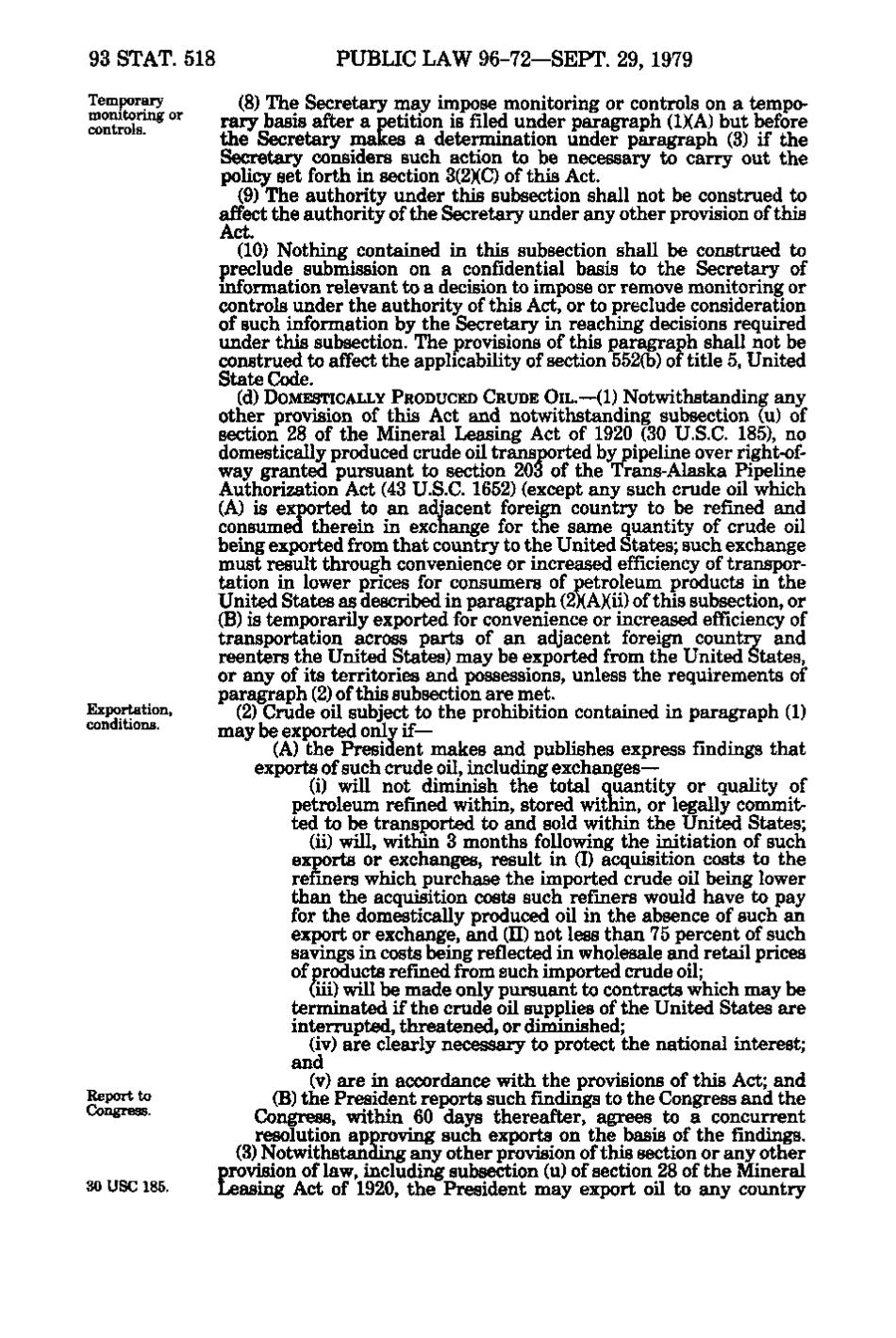93 STAT. 518 Temporary monitoring or controls.
PUBLIC LAW 96-72—SEPT. 29, 1979 (8) The Secretary may impose monitoring or controls on a temporary basis after a petition is filed under paragraph (1)(A) but before the Secretary m ^ e s a determination under paragraph (3) if the Secretary considers such action to be necessary to carry out the policy set forth in section 3(2)(C) of this Act. (9) The authority under this subsection shall not be construed to affect the authority of the Secretary under any other provision of this Act. (10) Nothing contained in this subsection shall be construed to preclude submission on a confidential basis to the Secretary of information relevant to a decision to impose or remove monitoring or controls under the authority of this Act, or to preclude consideration of such information by the Secretary in reaching decisions required under this subsection. The provisions of this paragraph shall not be construed to affect the applicability of section 552(b) of title 5, United State Code. (d) DOMESTICALLY PRODUCED CRUDE OIL.—(1) Notwithstanding any
Exportation, conditions.
Report to Congress.
30 USC 185.
other provision of this Act and notwithstanding subsection (u) of section 28 of the Mineral Leasing Act of 1920 (30 U.S.C. 185), no domestically produced crude oil transported by pipeline over right-ofway granted pursuant to section 203 of the Trans-Alaska Pipeline Authorization Act (43 U.S.C. 1652) (except any such crude oil which (A) is exported to an adjacent foreign country to be refined and consumed therein in exchange for the same quantity of crude oil being exported from that country to the United States; such exchange must result through convenience or increased efficiency of transportation in lower prices for consumers of petroleum products in the United States as described in paragraph (2)(A)(ii) of this subsection, or (B) is temporarily exported for convenience or increased efficiency of transportation across parts of an adjacent foreign country and reenters the United States) may be exported from the United States, or any of its territories and possessions, unless the requirements of paragraph (2) of this subsection are met. (2) Crude oil subject to the prohibition contained in paragraph (1) may be exported only if— (A) the President makes and publishes express findings that exports of such crude oil, including exchanges— (i) will not diminish the total quantity or quality of petroleum refined within, stored within, or legally committed to be transported to and sold within the United States; (ii) will, within 3 months following the initiation of such exports or exchanges, result in (I) acquisition costs to the refiners which purchase the imported crude oil being lower than the acquisition costs such refiners would have to pay for the domestically produced oil in the absence of such an export or exchange, and (II) not less than 75 percent of such savings in costs being reflected in wholesale and retail prices of products refined from such imported crude oil; (iii) will be made only pursuant to contracts which may be terminated if the crude oil supplies of the United States are interrupted, threatened, or diminished; (iv) are clearly necessary to protect the national interest; and (v) are in accordance with the provisions of this Act; and (B) the President reports such findings to the Congress and the Congress, within 60 days thereafter, agrees to a concurrent resolution approving such exports on the basis of the findings. (3) Notwithstanding any other provision of this section or any other provision of law, including subsection (u) of section 28 of the Mineral Leasing Act of 1920, the President may export oil to any country
�
